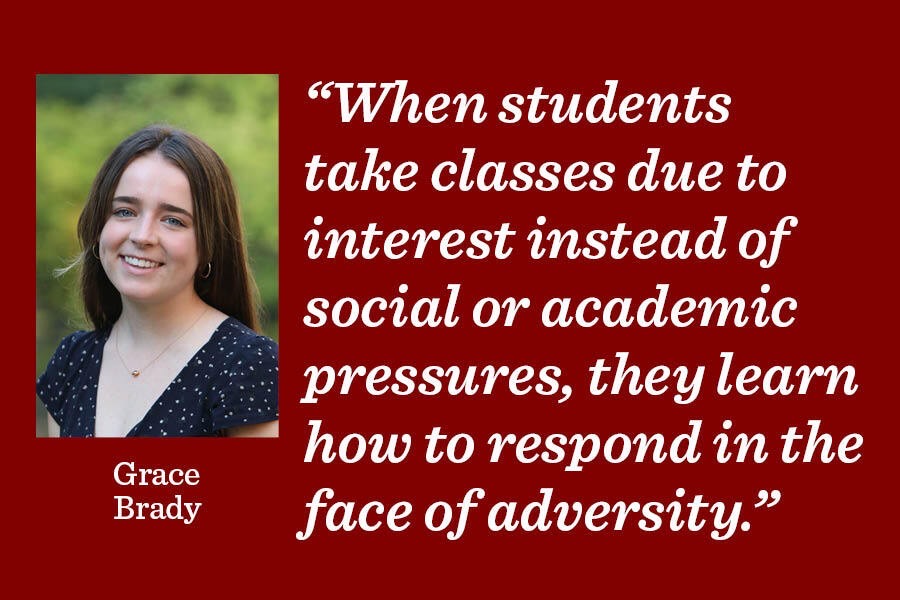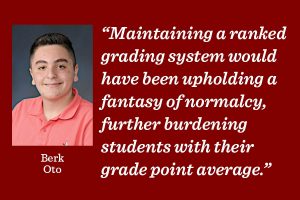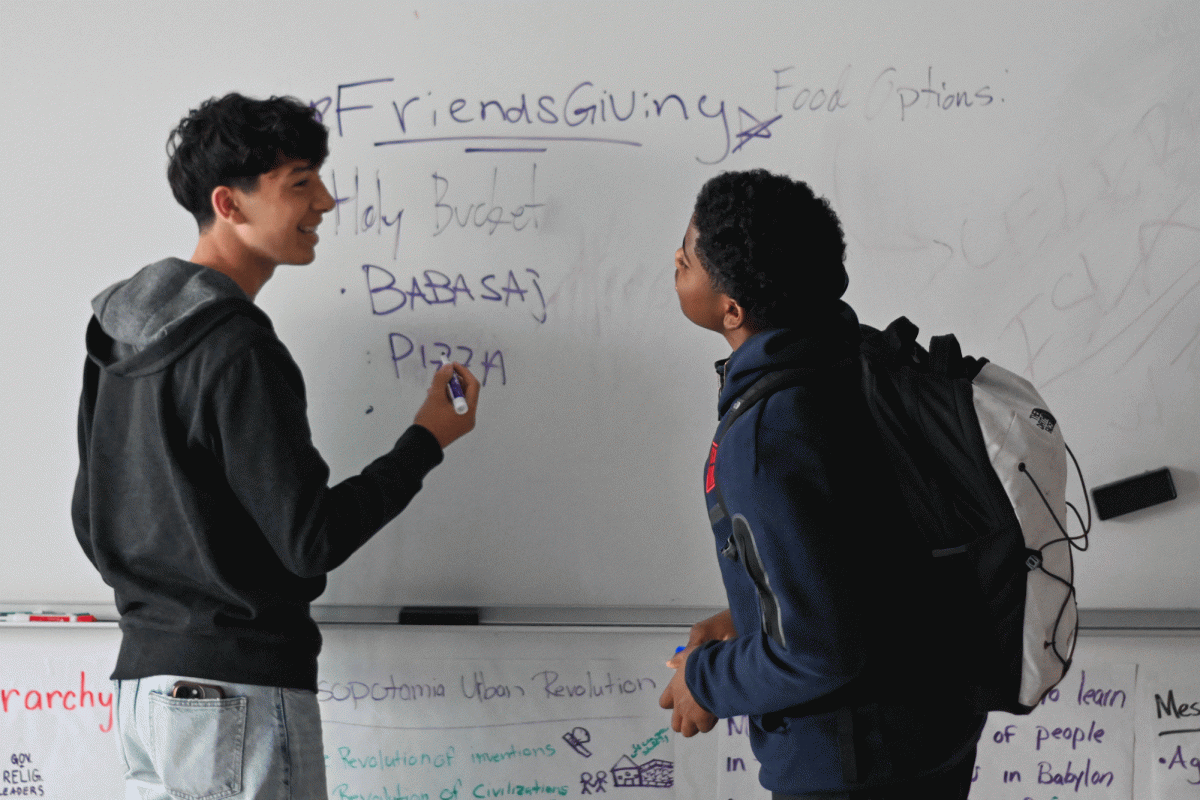Choose courses based on interest, not rigor
It is important to experiment with courses to diversify and explore interests says reporter Grace Brady.
May 7, 2020
Sophomores type course names into four-year schedule documents during a long advisory period. Each student types slowly, glancing at peers’ computers to compare. Remarks like, “I don’t have time for that class,” “This won’t help me get into college” and “I don’t know anyone taking that class,” bounce from wall to wall. Talking with sophomores, seniors point at the courses they wish they had taken when they were in the same spot.
Course registration gives students the opportunity to pursue classes of interest. However, it seems that every year, students follow their friends’ footsteps, tripping over each other to take classes with friends or classes they think will lead to the highest GPA. No matter what grade, students should take the opportunity to diversify their course schedule and explore their interests by taking classes outside of the core curriculum, such as extra language classes, music classes or independent studies.
When students take classes due to interest instead of social or academic pressures, they learn how to respond in the face of adversity. Taking these classes can help students realize that failure is natural in the learning process rather than inherently bad. According to researcher Xiaodong Lin-Siegler from Columbia University, many students view success as a natural talent they don’t obtain. When students are able to overcome the fear of failing, their opportunity to succeed increases. A study by Northwestern University showed those who did not receive funding for research during college were 6.1% more likely to write a successful paper over the next decade.
Students may believe that taking these classes will not be beneficial because they do not plan on being involved in that field of study. However, data shows that most students do not know what they want to study in the future. According to the National Center for Education Statistics, 80% of college students in the United States change their major at least once, and on average, students end up changing their major at least three times over the course of their college career. So, while students may be confident about their area of study, chances are they will end up in another field anyway. Though changes in major can be due to many different reasons, each one results in the same thing: a big change that can be difficult to adapt to if students are not prepared. Because of this, students should get a jump start by expanding their opportunities sooner rather than later, leading to them being more comfortable with change when the majority of them end up changing their major in years to come.
When students take classes without being knowledgeable about the course or its students, they are able to find independence in their education. While being in a classroom without any prior friends can initially be overwhelming, it can also result in students branching out to a new community and practicing life skills that are useful beyond high school, like working in unfamiliar groups, asking teachers for help and learning from people outside of one’s social circle. In doing this, students overcome initial hesitations to pursue other areas of interest because they will feel more comfortable in their own abilities.
As students find new hobbies at home, instead of following their classmates’ paths, they should pursue a wider array of topics, including these newly-discovered ones in order to prepare them for college, career changes or facing any task outside of their comfort zone. If students are able to find new hobbies or areas of interest during the shelter-in-place order, they should talk to their counselors about their newfound passions. Students who haven’t found new topics to be passionate about should also take this time to try something new, and think about pursuing these academically in coming years.















